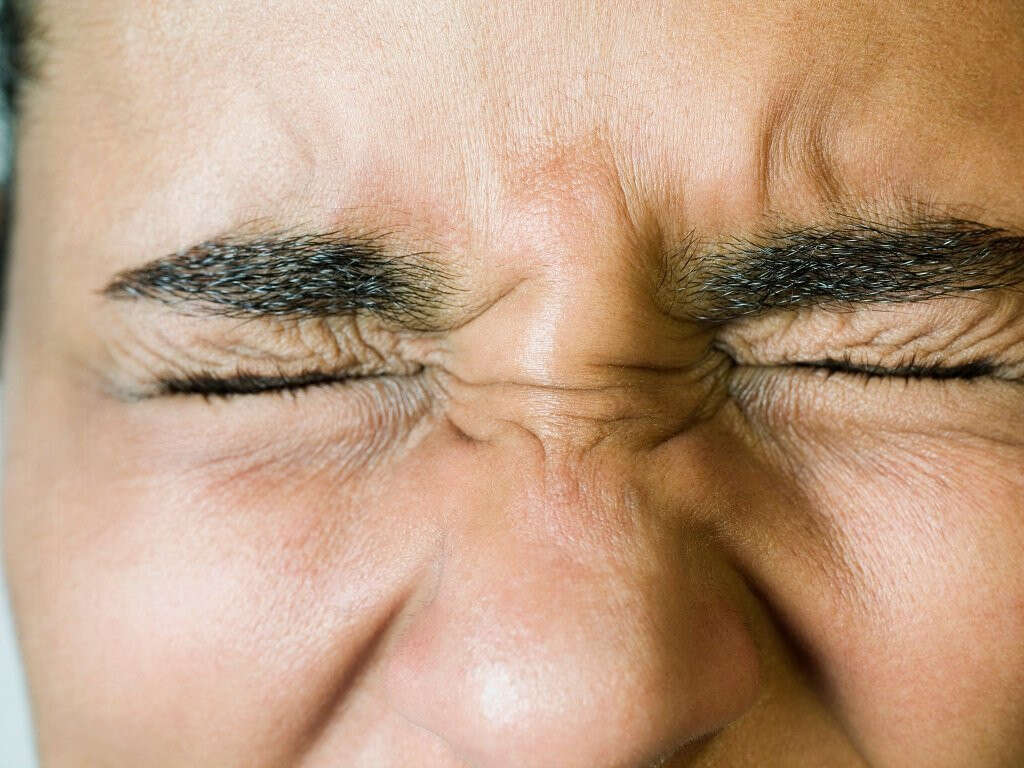What Is Tourette Syndrome?
There is a vast network of nerves in our body, and these are constantly passing messages between the brain and to everywhere else in the body. The brain itself is an extremely vast network of neurons and is more complex than any other structure that we know of in the universe.
With something so complex, it should come as no surprise that things will go wrong from time to time. This will sometimes cause some quite profound and perhaps also surreal consequences. One example of this is Tourette syndrome which is a fairly well known disease because of the way it makes its victims behave.
1. Tourette Syndrome
Tourette syndrome is a condition that is often seen as a source of amusement for some people. While it may be funny on the outside looking in, however, it is a condition that can be very distressing for the patient, and for people who are close to them. The condition causes the patient to perform actions and sounds involuntarily.
The actions and sounds will often not be easy to notice as being part of a problem. This can include things like coughing and nose twitching. In other cases, the symptoms can be far more striking and can draw a lot of attention to the patient. This can include things like making repetitive movements and inappropriate, profane outbursts.
2. Causes
It is not well understood exactly what causes Tourette syndrome. It is a condition that can seemingly affect just about anybody, including those that are healthy physically and mentally. Research has shown, however, that genetics is one of the leading factors when it comes to the condition.
Studies have shown that Tourette syndrome is caused by inheriting a dominant gene and that there is a 50% chance of a parent passing the gene on to their children. Boys are more likely to have it than girls, while research has also suggested that pregnancy complications, smoking during pregnancy, low weight at birth, and infections may also be involved in some cases.

3. General Symptoms
Tourette syndrome will cause the patient to make erratic movements and sounds. Before this happens, though, the patient is likely to feel a bodily sensation that is quite often and the tic will help to bring relief. Even though the patient will often know that a tic is coming, they are usually powerless over stopping it.
The movements and sounds are more likely to happen when the patient is feeling stressed or anxious. Excitement can also cause outbursts, and tiredness can also make them more likely. The symptoms will often appear in childhood and will get worse when they become teenagers. The symptoms will often improve as the patient becomes an adult, however.
4. Simple Movement Tics
The sounds and movements that Tourette syndrome causes are known as tics. Sometimes these are simple tics, which mean brief movements that only involve a few muscle groups. In some cases, these tics may be barely noticeable to other people, meaning they will cause few problems for the patient.
Examples of simple movement tics include things like eye blinking, shoulder shrugging, eye darting, and nose twitching. It can also cause symptoms like suddenly jerking the head, or making certain mouth movements. There is a wide range of simple movement tics that can be performed, and they will often precede vocal tics.

5. Simple Vocal Tics
As the name suggests, vocal ticks mean that the patient is making certain sounds rather than physical gestures. However, the sounds will often come at around the same time and/or during movement ticks. These tend to be fairly straightforward noises rather than complex spoken words or phrases.
Examples of vocal tics include grunting and screeching. Throat clearing is another potential vocal tick and coughing is another relatively common variety. In some cases, the patient may even make barking sounds. Again, the variety of simple vocal ticks is very varied, and they can sometimes be quite embarrassing for the patient when they happen in public places.
6. Complex Movement Tics
As the name suggests, complex movement tics are similar to simple vocal tics, only the movements involved are more complex. These will involve using several muscles groups and the movements can seem complex to the point where it appears as though they must be deliberate.
Examples of complex movement tics include repeating movements that have been made by another person. The patient may walk in a particular gait that is unusual and they may twist and bend their body. The patient may also make other unusual movements like hopping and jumping, and the tics can also involve picking up objects and smelling them.

7. Complex Vocal Tics
Tourette syndrome can also cause complex vocal tics. These are more than just simple sounds but are instead spoken words. This will often mean repeating what other people have just said, while it can also mean the patient repeats their own words. It can also cause the patient to say random words or phrases which can be a source of amusement to some.
Tourette syndrome can also cause outbursts of profanity. This can be particularly troublesome for the patient as it might cause altercations with people that are not aware of their condition. It can also make it very difficult for the patient to manage in social situations.
8. Complications
Patients with Tourette syndrome will often experience some very difficult challenges in their life. The symptoms can make it difficult for the patient to socialize, or even be in public at all in some cases. This can cause them to suffer in terms of their self-esteem, and it can lead to depression in some cases.
Tourette syndrome is also associated with certain other mental health conditions. This includes anger management problems, anxiety disorders, and sleep disorders. Patients with the condition may also have learning disabilities and autism. Obsessive compulsive disorder is another associated condition, as is attention-deficit/hyperactivity disorder. The tics that come with Tourette syndrome can also cause pain for the patient, including headaches.

9. Medication
There is, as yet, no known cure for Tourette syndrome. However, medication is available that can at least help to manage the condition. Depending on the severity of the patient’s symptoms, treatment may not be deemed necessary. When medication is prescribed, it will generally try and control the patient’s symptoms.
A Botox injection into affected muscles will sometimes be able to help reduce simple tics. Other medication may be used to help reduce levels of dopamine, but this can come with some dangerous side effects. Anti-seizure medication may also be prescribed to help manage tics. Medication for depression and anxiety will also be needed in some cases.
10. Therapy
In addition to medication, therapy can also be effective in treating Tourette syndrome. This includes psychotherapy that can help the patient to deal with other mental health conditions that are associated with the syndrome. This includes helping the patient to manage conditions like depression and anxiety.
Behavioral therapy may also be used, which will help the patient to learn how to identify urges and control their tics. Deep brain stimulation is another potential treatment for Tourette syndrome, although it is still in development. This involves using a device that delivers electricity to certain areas in the brain that control movement.










